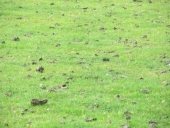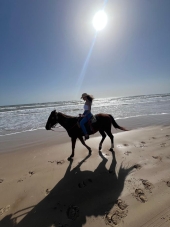
 2
2




"When the whole world is running towards a cliff, he who is running in the opposite direction appears to have lost his mind." C.S. Lewis
Visit https://themaineingredient.com for organic, premium dried culinary herbs that are grown, processed, and packaged in the USA.

 8
8




 4
4




Visit Redhawk's soil series: https://permies.com/wiki/redhawk-soil
How permies.com works: https://permies.com/wiki/34193/permies-works-links-threads












 3
3




 3
3




Invasive plants are Earth's way of insisting we notice her medicines. Stephen Herrod Buhner
Everyone learns what works by learning what doesn't work. Stephen Herrod Buhner
 4
4




 6
6




 5
5




 5
5




Christopher Weeks wrote:You mention the risk to livestock, but the predator population also protects them! Native deer (etc.) carry diseases that can jump to your herds, but if the infected deer get weak out in the woods and are taken by a wolf, that deer has less chance to spread their infection to your cattle. I suppose the same thing must protect human health sometimes, but the only examples springing to mind are things like dragonflies eating mosquitos where the dragonfly doesn't have any downside -- it isn't going to prey on our children or hens.
 5
5




https://againfarmstead.com/ | @againandagainfarmstead
 7
7




E Sager wrote: 4. There are good predators and bad predators within a species.
Visit Redhawk's soil series: https://permies.com/wiki/redhawk-soil
How permies.com works: https://permies.com/wiki/34193/permies-works-links-threads
 7
7




Jay Angler wrote:I'm not sure if you're looking on the individual basis or the sub-species basis
https://againfarmstead.com/ | @againandagainfarmstead
 6
6




 5
5




 8
8




Visit Redhawk's soil series: https://permies.com/wiki/redhawk-soil
How permies.com works: https://permies.com/wiki/34193/permies-works-links-threads
 7
7




 7
7




 11
11




Best luck: satisfaction
Greatest curse, greed

|
Can you shoot lasers out of your eyes? Don't look at this tiny ad:
A book about better recipes for green living
https://greenlivingbook.com/
|




